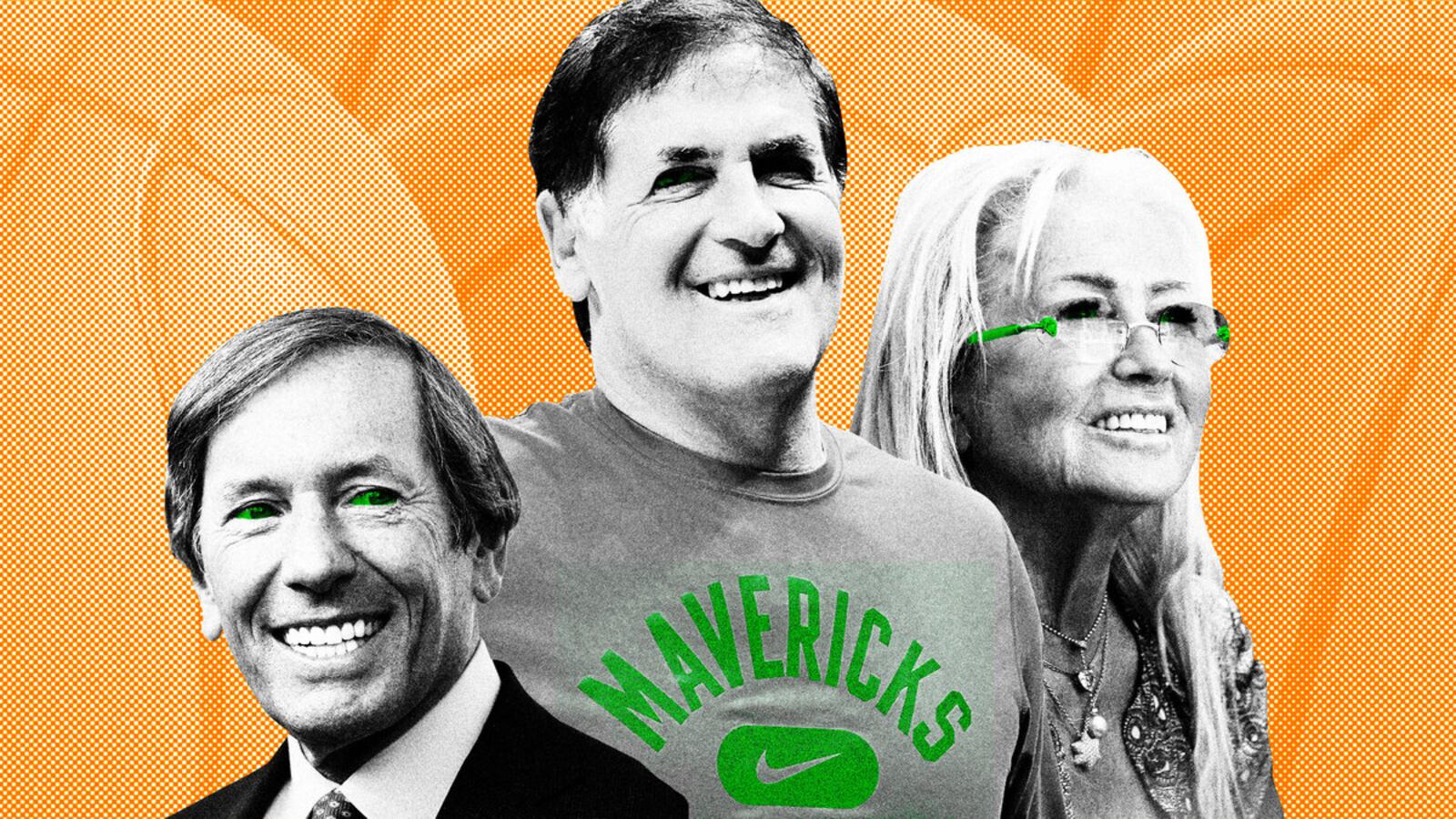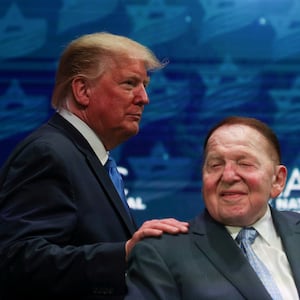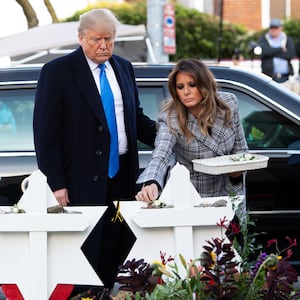As far as his fellow NBA owner plutocrats are concerned, Mark Cuban has been falling behind. Once, Cuban was a symbol of excessive tech wealth’s entrance into the league, pumping cash and employing a newfangled analytic approach to turn the Dallas Mavericks, an ignoble afterthought, into a prestige franchise with a hot new stadium and training facility, a staging ground for the career of the mighty Dirk Nowitzki, and an NBA champion. But the owners who followed Cuban from tech into the league were as obscenely wealthy and enamored with their own intelligence.
Last year, Cuban spoke of his dreams for the future of the Mavs: a new arena (The current arena, American Airlines Center, is only a little more than twenty years old) that forms the center of a gigantic luxury gambling resort in the Dallas-Fort Worth metro area. A vertically integrated entertainment money extraction system, deep in the heart of Northeast Texas.
There are some obstacles to Cuban’s dream. Building a new arena is expensive, and taxpayers probably won't be keen on footing the bill to replace a 20-year-old stadium. Also, gambling is still illegal in Texas. so a big casino on non-reservation land isn’t going to happen without a little arm twisting. Arm twisting like that costs a lot of money and would require deep connections to the Texas state government, which would mean getting in deep with the Texas Republican Party, the sort of enterprise that Cuban, who sees himself as somewhat more benevolent than, for instance, the Koch Brothers, might find distasteful.
But when you are, like, way too fucking rich, the universe has a way of opening itself to you. This week, Cuban sold a majority stake in the Mavs to Miriam Adelson (net worth: $32.3 billion, source: searching “Miriam Adelson Net Worth'' on Google). Miriam is the widow of Sheldon Adelson, who was the founder of the Sands Corporation, a casino operator whose reach spans the whole of this rotten globe. Sheldon was also, let’s see… oh, a virulent Islamophobe, an enthusiastic Trump supporter, a dark-money ghoul, an addiction profiteer, and one of the most notorious Americans to ever do it. Were it not for the DeVos family, who lord over the Orlando Magic, the Adelsons would be the worst people to own an NBA team. As it stands, I have to call it a tie.
Cuban could have kept running something close to the current version of the Mavs until he was in the grave, but if he wanted to really juice the asset, he needed to be someone else—someone richer, someone a little more connected. He hit a wall and so he divested, structuring the deal to keep himself in charge, but get himself out of the moneyman portion. In order to build a big new stupid stadium, a gambling omniplex, and pay larger and larger luxury tax hits to keep Slovenian wonder Luka Dončić happy as the face of the franchise. With the Adelson deal, Cuban gets to keep both running the team and the public profile it gives him; and he is making a bet on his vision of the future of the franchise—a nasty vision, if you ask me—without having to bankrupt himself or degrade his public problem to make it happen.
The Adelsons, meanwhile, get an asset that would normally subject them to scrutiny but will remain attached to its previous owner in the public consciousness; the opportunity to build a behemoth for draining the pockets of the good people of Texas; a new cause to fight for in the malleable world of Texas statehouse politics, and also free Mavs tickets.
_____
Cuban is not the only single-digit-billionaire to sell his majority stake in an NBA team this year: Michael Jordan sold a large chunk of the Charlotte Hornets to a private-equity consortium. Everywhere, NBA ownership is going away from the local-kingpin-single-owner type, and into a world of bigger, weirder money. Private-equity raider types, ultra billionaires like Adelson or Steve Ballmer.
Once, in America, sports team ownership was protectionist. Owners tended to think about bottom lines, fight players tooth and nail for CBAs restricting salaries, and looked to keep anyone too well capitalized from entering the game and fucking it up for everyone. It was a business, yes, but it was also a game, one of those fucked-up billionaire points of pride that kept them getting up in the morning, even as the realization that nothing in the entire world can make them happy was radiating at the edge of their consciousness.
But since Adam Silver replaced the late David Stern as NBA commissioner, that has all… shifted. The NBA is, like every industry, simply slipping into the subjective of late capitalism, where “profiting” off a “product” you “sell” is regarded as a secondary function, behind generating as much equity in your asset profile as possible.
Last year, the NBA decided to allow sovereign wealth funds (SWFs) to purchase up to 20 percent of an NBA team. In Europe, where money has always flowed more freely into sports, oil-rich Middle Eastern countries, looking to diversify their portfolios and rehabilitate their less than savory public reputations, have instructed their SWFs to acquire big soccer clubs, driving valuations up across the board.
The NBA, the most globally inclined American sports league by a considerable margin, can’t look at this trend and not weave their fingers together. Some provincial owners might object for a while, but when the checks come in, they will probably buckle under the weight of cash.
But SWFs, like the Adelsons, the DeVoses, or many of the other ultra-wealthy people and organizations looking to break into the big game, have a problem: They are owned by deeply odious people, engaged in mass exploitation that makes a normal person wonder if humanity itself is flawed at its very core.
But Cuban’s gambit is a model for the future of monsters getting in the door. Cuban is an odious guy by dint of his massive wealth, sure, but he’s not totally unappealing on the level of his partners in the Sands corporation. He can appear in public without bursting into flames, he worked in television, and he doesn’t, you know, bankroll political movements looking to dismantle American democracy wholesale. He can stand in for the nightmare, expand his wad in the process, and shield them from the public while they slink around in the shadows, serving their shared interests.
Soon, two things are going to happen in the NBA: LeBron James is going to retire and the league is going to expand. James, who already has shreds of non-NBA teams littering his investment portfolio, is going to be a nominal owner for one of those expansion franchises, probably one in Las Vegas, a smaller market but one that can generate a small hurricane of gambling revenue and also has the benefit of having an easily manipulatable local government. Who his backer will be in this endeavor is still up in the air, of course. But… he did go to Saudi Arabia recently and even if the Saudi SWF can’t currently own more than 20 percent of an NBA team, there’s no reason to believe that an owner class that is more and more valuation-driven wouldn’t welcome the owners of the world’s largest oil reserves.
Does it matter that the Saudi government’s reputation in America is less than spotless? No, because LeBron would be doing all the public-facing shit, making decisions, giving interviews. And LeBron isn’t a blood-soaked autocrat destroying the planet by selling fossil fuels; he’s the NBA’s all-time leading scorer! It’s actually very inspiring, seeing as he grew up poor, born to a teenage mother in a shitty part of Ohio. The sports media, who love athletes and hate the real world, would be more than willing to ignore whichever monster lined up behind the King.
I will end with some rank speculation: The new NBA collective bargaining agreement is designed to severely punish teams who go deep into the luxury tax, year after year after year. Some teams who are looking to contend have dealt with these penalties with a very novel strategy: shrugging their shoulders and paying a fuck-ton of luxury tax. After all, when you are Microsoft’s first employee, in Ballmer’s case, it’s a matter of millions when you wipe your ass with a hundred grand in treasury bonds.
This has created a very strange environment in the league right now. If you are competing for a title, the best advantage you can have is a willingness to light money on fire like it doesn’t matter to you. This is an advantage for Ballmer, for teams who have a line to private equity, for the Devoses and the Adelsons, people who have so much money that the only thing they can spend it on is circumventing the rules and imposing their will on the world.
But some teams will be left in the lurch. Take the Los Angeles Lakers, for instance. They are the NBA’s most valuable franchise, a beloved institution in the country’s second-largest city, the one team that defines the NBA more than any other. But their owners, the Buss family, aren’t a juggernaut of capital. Dr. Jerry Buss was a real-estate man who bought into the team, collected a ton of wealth from it, and passed it on to his children. They don’t have some second source of capital, they just have the Lakers. And so, yes, they can make a lot of money from the team. But when push comes to shove and they want a new arena, or their title hopes demand they pay luxury taxes out the ass, or some other thing is demanding a massive capital injection, they’re just not kitted out like the big boys. It could be a problem for the team as a competitive entity, and soon.
An incredibly valuable franchise with capital flow problems: this is the future of the Lakers. Unless, of course, they opt out of that second thing, and into a relationship with a new owner, from somewhere, who can really pump in the money to keep the Lakers being the Lakers.
Ask yourself: is whoever can pay that price really going to be a cool guy, a friend to humanity? Or are they going to be a blood-soaked warlock in some capacity, leeching off the good will the LakeShow generates?









